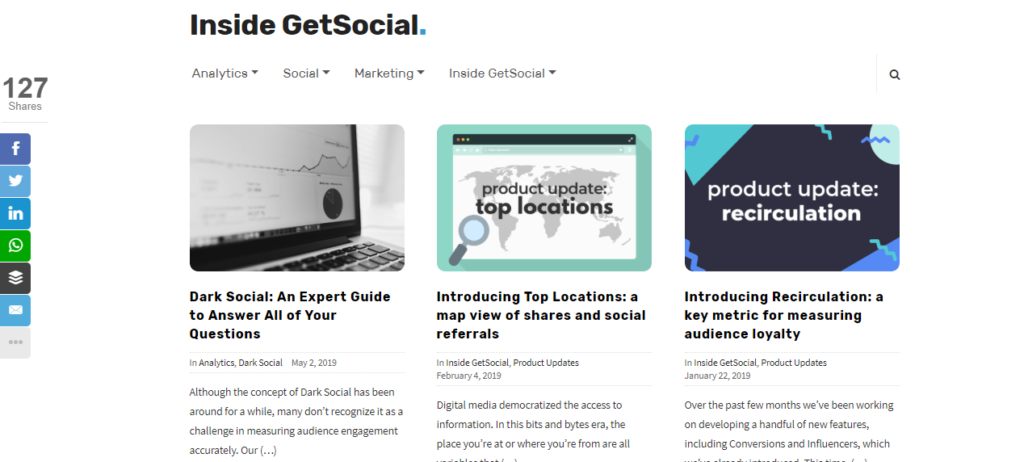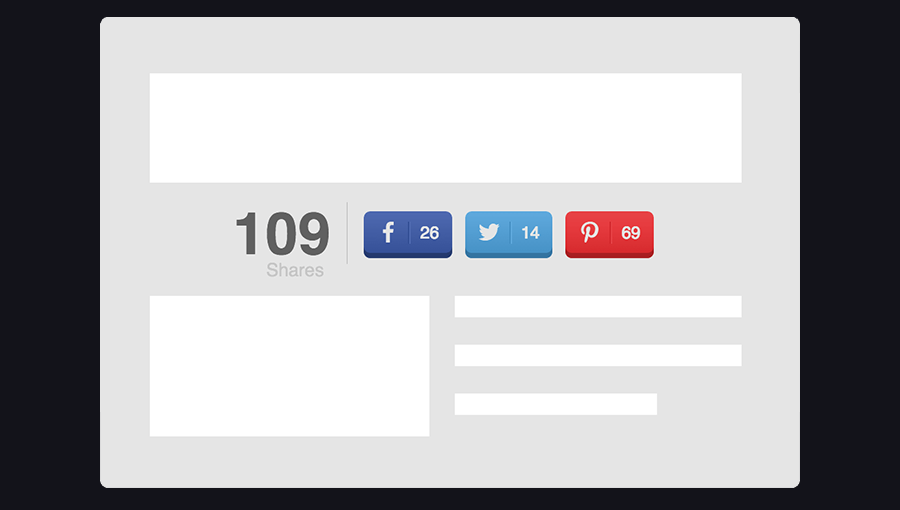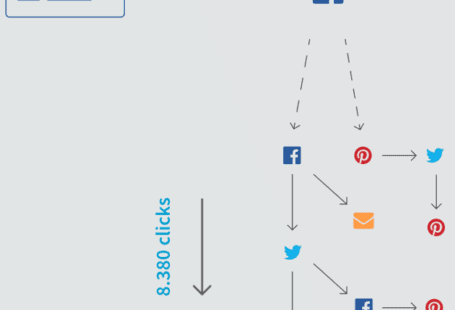We recently made our WordPress Social Share Buttons Plugin free again, which means the timing is as good as ever to talk about share buttons.
What is their purpose? Are they actually effective? And how do they relate to your privacy policy?
Social sharing buttons are generally easy to implement and often free, so it’s no surprise that most websites have them. They’re a great way to encourage visitors’ sharing, more specifically for e-commerce, digital publishers and other content-based websites/blogs.
Yet, a lot of people are not aware of the implications that most social sharing plugins have on their visitors’ privacy.
Today we’d like to tell you about why websites should have share buttons but, most importantly, why you may need to reconsider using certain plugins if you have a strict privacy policy.
Why are share buttons important?
Share buttons allow website visitors to share content easily on their social media channels and messaging apps. With a simple click, anyone can share an article to their Facebook feed or directly to a friend on Facebook Messenger.
This provides an opportunity to avoid the rather long process of copying a URL, leaving the website, opening a new page and pasting the link where you want to share something with others.
By encouraging visitors to share your content you’re also encouraging them to bring more traffic to your website. On a grand scale, a simple share button can be the starting point of a few conversions.
A lot has been said about the true value of having these plugins on your website. Some people claim it’s good for SEO, while others believe it slows down their page.
On the other hand, there are those who assume that people don’t use these buttons at all, while others wholeheartedly believe that’s the only method of sharing.
In terms of SEO, there’s no clear evidence that share buttons, in general, have negative repercussions on a website. So long as the plugin is well-built, there should be no problem. In fact, if anything, share buttons can help SEO as they increase referral traffic when used.
But let’s get into more details regarding how often they’re actually used.
Do people actually use share buttons?
Back in 2017, we saw a significant difference in sharing behaviors when studying how people accessed and shared content. Only around 15% of social shares were made through share buttons, while the remaining 85% happened through Copy-Paste.
This is what we know as Dark Social, a term that continues to gain buzz as more people acknowledge there is more to their Direct Traffic than it appears. This sharing behavior — copying & pasting a link onto a private conversation — has been increasing over the years, especially in the publishing industry.
According to a study from Digital News Report, the habit of sharing news to public social media channels decreased in 2018. On the other hand, there’s a significant rise in the use of messaging apps for news.
As for our own findings in 2018, research showed us that 71% of shares were made through Copy & Paste, leaving the remaining 29% to Share Buttons.
What does this mean for share buttons? Are they becoming useless?
No, of course not.
Although most visitors favor Dark Social shares, share buttons are far from obsolete. There is a still a portion, however small, of every audience that uses them. In fact, you want to encourage this behavior, as it makes attribution of traffic much easier.
It should go without saying that this also depends on things such as the design and positioning of your share buttons.
While it may look more aesthetically pleasing to you to have extremely small buttons placed just below your banner image, your website visitors might completely miss them. On the other hand, having too many large buttons spread around your pages can overwhelm the user to the point that they just start to ignore them.
As shown in our blog, a vertical social media share bar next to content is a pretty common way of displaying share buttons.

Why you should consider your privacy policy when choosing a plugin
There’s no shortage of options for those in need of share buttons. A quick search on Google or WordPress Plugins will direct you to solutions such as AddThis or ShareThis.
However, as people are becoming more conscious of privacy issues online, businesses are working hard to strengthen their policies and not all social sharing plugins satisfy their privacy needs easily.
Even if they’re not used by a visitor, share buttons place cookies on a user’s device when they view a website.
Most brands that provide these share buttons sell the cookies to third-party services, which then use cookies to track users’ web browsing activities so companies can send them personalized ads.
Although brands are usually transparent about this in their own privacy policies, many of their users might not take the time to figure that out.
Not everyone is bothered by the implications of this, but bigger businesses with stricter policies are now more cautious with their user’s privacy than ever.
Although remaining completely anonymous on the internet and escaping targeted ads is quite difficult, each business is responsible for what happens on their website, so privacy policies need to step up where they can.
When it comes to cookies from share buttons, GetSocial doesn’t sell users’ data to third-party services. Not even in our free plan. All the data we collect through our features belongs to our customers.
This has been the starting point for many long-lasting relationships we currently maintain with our customers.
Conclusion
If you don’t already have share buttons on your website and this post convinced you to install them, why not install our plugin?
And if you’re already way ahead of that and have been using share buttons for a while, let us know if your business’ cookies policy aligns with your plugin.
Interested in knowing more about Dark Social & Analytics?
[su_button url="https://getsocial.io" target="_blank" style="flat" background="#21D2B5" color="#ffffff" size="7" wide="no" center="yes" radius="auto" icon="" icon_color="#FFFFFF" text_shadow="none" desc="" onclick="" rel="" title="" id="" class=""]SIGN UP FOR FREE[/su_button]





